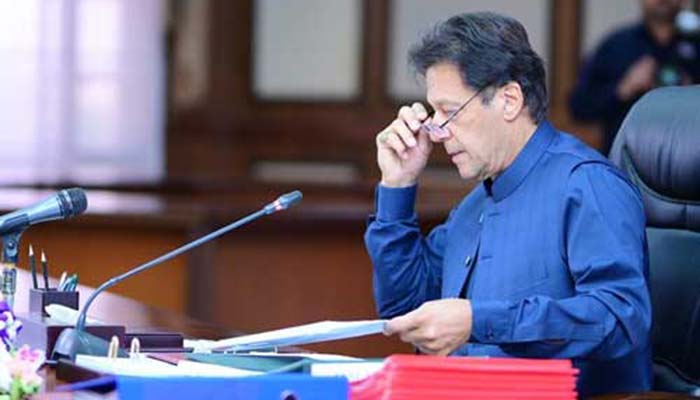PM's high-powered inquiry commission: Is it even legal?
Does PM Imran have legal authority to establish such a commission when NAB is working on a similar agenda?
June 25, 2019

Recently, Prime Minister Imran Khan constituted a "high-powered inquiry commission" to probe corruption in the country and to determine why Pakistan's foreign debt swelled over the years. The Commission, as directed, will be headed by the deputy chairman of the National Accountability Bureau (NAB), and 11 other representatives, including from the Inter-Services Intelligence (ISI), Federal Investigation Agency (FIA), Intelligence Bureau (IB), Federal Board of Revenue (FBR) and the Securities and Exchange Commission of Pakistan (SECP). The final report is due in six months.
Now as the Commission begins its work, one question remains: Is it even legal?
Ever since the prime minister announced forming the Commission, there have been concerns raised about its transparency, reasonableness and legality. Does the government, and the prime minister, have the legal authority to establish such a Commission, especially since the NAB, a national anti-graft body, is already working on a similar agenda?
The NAB is an autonomous body, constitutionally established as a federal institution for the sole purpose of the speedy recovery of outstanding amounts from individuals involved in corruption, corrupt practices and other such matters. It was established under the National Accountability Ordinance, 1999, which lays down the complete legal framework within which NAB operates, investigates, prosecutes and disposes of cases.
The NAB is headed by a chairman, appointed by the president, through a transparent process. It has eight regional officers, each with its own director general and a team of lawyers and investigators. The independency of the chairman is backed by a procedure laid down under Section 6 of the Ordinance, wherein the president appoints the chairman after consultation between the leader of the house and the leader of the opposition.
It is incumbent upon the chairman, and other NAB representatives, to duly carry out all the tasks that now the prime minister is delegating to a "high-powered commission". If there already is an effective, reasonable and transparent legal body such as the NAB, to eradicate corruption, what is the need for a parallel Commission? Such an action only increases the expense of the state and makes the NAB's role redundant.
If the reason for establishing the Commission is to track down the $10 billion accounts, purportedly operated by Pakistanis abroad, then the prime minister should be reminded of the fact that Section 21 of the Ordinance makes it abundantly clear that the NAB may formally make a request to a foreign state to obtain any evidence, freeze assets, confiscate articles and anything else to curb corrupt practices.
With an already formulated and established National Accountability Bureau, legally empowered by the government to chase after corruption and hold any individual, from the private or public sector accountable, the creation of another alike body, with the same powers as the NAB, won't assist but further complicate matters on a legal footing – especially if the matter is challenged in court. Serious concerns will come up about the jurisdiction of each body.
Outside the court, the rest of Pakistan, including the opposition parties, will be asking what will the government do to ensure that the new Commission is fair and transparent?
Pansota is an advocate of the High Court in Lahore. He tweets @pansota1











